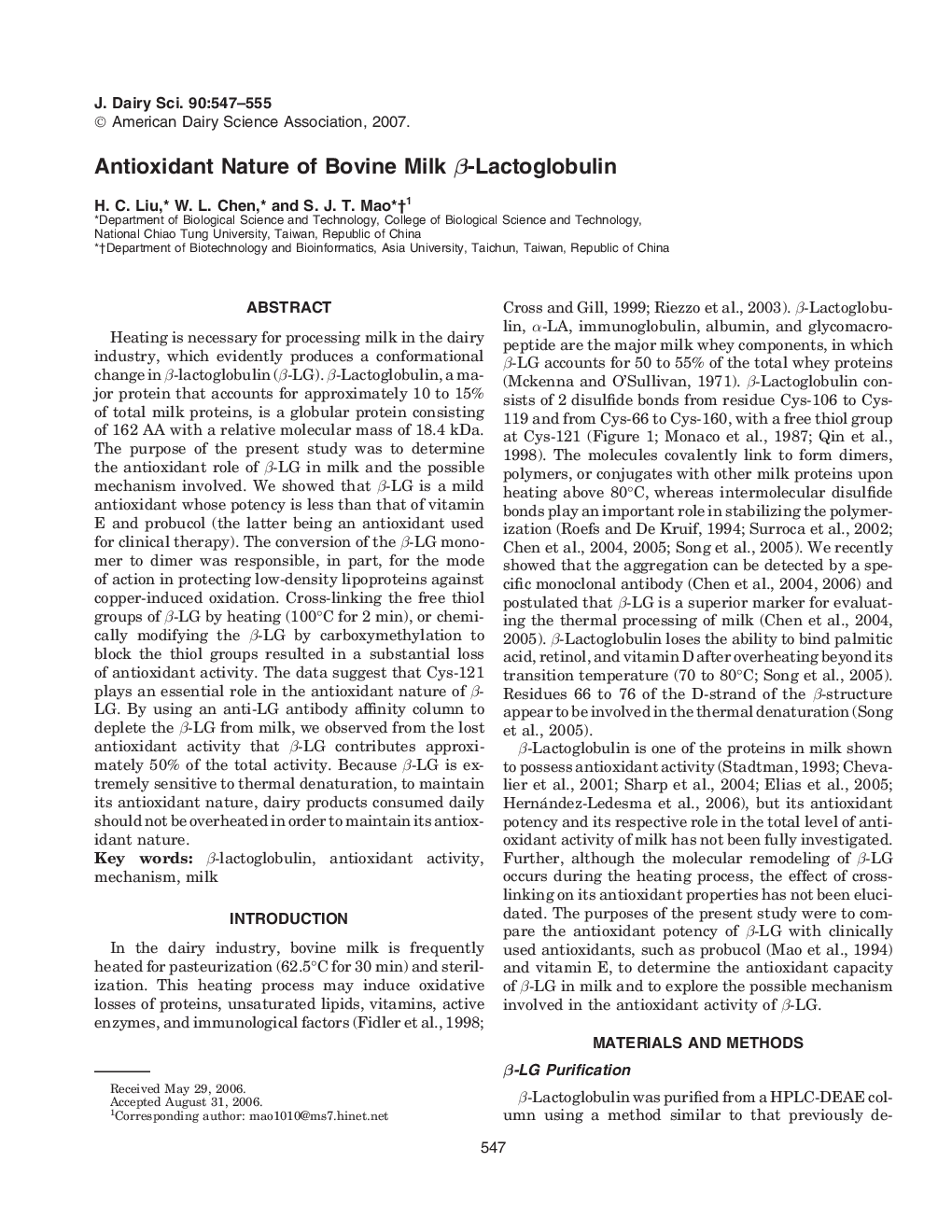| Article ID | Journal | Published Year | Pages | File Type |
|---|---|---|---|---|
| 2440320 | Journal of Dairy Science | 2007 | 9 Pages |
Heating is necessary for processing milk in the dairy industry, which evidently produces a conformational change in β-lactoglobulin (β-LG). β-Lactoglobulin, a major protein that accounts for approximately 10 to 15% of total milk proteins, is a globular protein consisting of 162 AA with a relative molecular mass of 18.4 kDa. The purpose of the present study was to determine the antioxidant role of β-LG in milk and the possible mechanism involved. We showed that β-LG is a mild antioxidant whose potency is less than that of vitamin E and probucol (the latter being an antioxidant used for clinical therapy). The conversion of the β-LG monomer to dimer was responsible, in part, for the mode of action in protecting low-density lipoproteins against copper-induced oxidation. Cross-linking the free thiol groups of β-LG by heating (100°C for 2 min), or chemically modifying the β-LG by carboxymethylation to block the thiol groups resulted in a substantial loss of antioxidant activity. The data suggest that Cys-121 plays an essential role in the antioxidant nature of β-LG. By using an anti-LG antibody affinity column to deplete the β-LG from milk, we observed from the lost antioxidant activity that β-LG contributes approximately 50% of the total activity. Because β-LG is extremely sensitive to thermal denaturation, to maintain its antioxidant nature, dairy products consumed daily should not be overheated in order to maintain its antioxidant nature.
